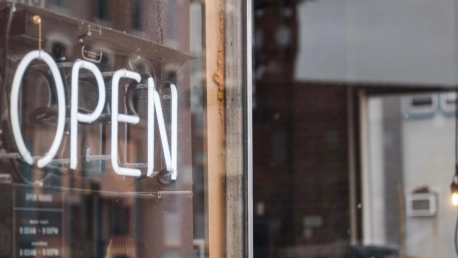According to the International Monetary Fund (IMF), Russia’s unjust war in Ukraine is having a negative impact on the global economy, contributing to a significant slowdown in global growth in 2022 and beyond. Moreover, problems fueled by the conflict are exacerbating existing issues such as inflation and disrupting global economic recovery. People living in low-income countries are now struggling to make ends meet as fuel and food prices continue to rise. However, these problems are also affecting Americans, as economic growth is projected to slow from an estimated 5.7 percent in 2021 to 3.7 percent in 2022 and 2.3 percent in 2023, according to the IMF.
Numerous questions arise as industries in the United States and around the world appear to be facing more and more problems as the geopolitical crisis continues. Are US sales strong enough to sustain the impact of a weakened economy? Are new stores bound to fail as they open their doors during a new crisis, or can businesses recover? As new reports show, answering these questions may prove more complicated than it would seem at first. Although concerns about the geopolitical crisis in Europe and global rising inflation remain high, there are also positive signs about the US economy, particularly in industries such as retail.
Retail sales are on the rise
According to the Mastercard SpendingPulse report, US total retail sales, excluding autos, increased by 7.2% year-over-year (YOY) in April, and are up 15.3% from April 2019. The data is consistent with the previous months of 2022, demonstrating that the American retail industry can withstand the impact of Europe’s recent geopolitical crisis. There is, however, one important area showing signs of decline – online sales are now down 1.8% compared to 2021. This may reflect shoppers’ need to get out of their homes and enjoy themselves while shopping, especially given that brick-and-mortar sales are up +10.0%.
Another interesting detail from the report is the fact that California, New York, Florida, Nevada, and Illinois were among the states leading the trend to return to in-person shopping. Moreover, Americans appear to be gearing up for summer travel and other leisure activities, as apparel sales are up 10.8% YOY and 8.4% when compared to pre-pandemic levels, and department store sales are also up 15.7% YOY and 22.3% when compared to 2019 data. However, the research also indicates that growth has already started to decline from the peak seen in the first months of 2022.
New stores point to new hopes
With in-store sales continuing to recover with a double-digit increase in April, it is no surprise that new stores are also opening their doors to customers across the country. One of the most awaited physical store openings this year is probably Meta’s store in Burlingame, California. The company formerly known as Facebook has decided to transcend its digital past and take a step forward by opening a 1,500-square-foot shop near its Reality Labs Headquarters. Here, Meta now displays and sells its Quest Two virtual reality headset, a pair of “smart glasses” designed by Ray-Ban, and other smart devices.
According to Martin Gilliard, Head of Meta Store, the future of the new shop is inextricably linked to that of the Metaverse, a digital space where people around the world can use virtual reality and other new technologies to socialize, learn, collaborate, and play in novel ways. “We built the store to feel like home, to feel like work so that you could actually easily apply how this experience translates into how to use it in the real world,” Gilliard explained. However, Meta’s new store may be more than just displaying new products. According to Gilliard, Meta is also interested in learning how consumers interact with these products, while others see this as a new way of boosting sales.
More is yet to come
While Meta’s new store in California may be the most interesting store opening in recent times—as it goes to show that even a digital company can take important steps toward physical sales—it is by no means alone. In fact, IKEA recently announced that it will invest more than $3.2 billion in its stores in the US, France, Finland, Canada, Germany, and Spain. According to its largest franchisee, the money will not only be used to build and open new stores in these countries but also to update the existing ones. Like Meta, IKEA’s decision points to the fact that not only are in-store sales growing, but more is yet to come for retailers in the US and abroad.









